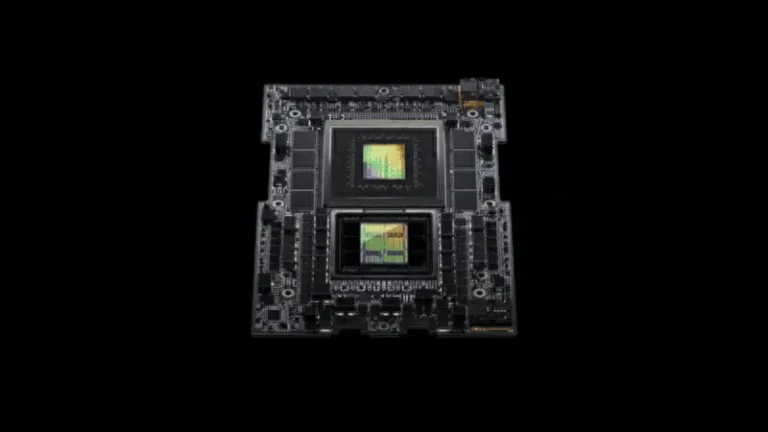
The latest data indicates a remarkable trend: Nvidia, a leading player in the AI chip market, has benefited immensely from the surging demand for generative AI over the past year, consequently pushing its market share in the global AI chip market to a record-high of 90%.
In the current landscape of the AI acceleration chips market, Nvidia’s A100/H100 series AI GPUs have emerged as the top choice among consumers. This preference is supported by findings from various research institutions, which suggest that Nvidia has an ambitious plan to sell around 1.5 to 2 million AI GPUs in the year 2024. This estimate is staggering as it implies a potential tripling of their sales from 2023, reinforcing Nvidia’s unchallenged and formidable leadership position in the AI chip industry.
Renowned market research firms such as Gartner and Moor Insights & Strategy have analysts who predict an unrelenting upward trajectory for Nvidia in the AI chip market come 2024. Chirag Dekate, an esteemed vice president, and analyst at Gartner, shed light on Nvidia’s strategy saying that the company has been instrumental in shaping the market, leaving competitors in a challenging spot as they scramble to catch up with Nvidia’s innovation pace.
Interestingly, Nvidia’s leadership isn’t solely attributed to its advanced hardware capabilities. The company’s Cuda software plays an equally significant role in keeping it ahead of its competitors. Chirag Dekate emphasized that the software remains Nvidia’s strategic moat, providing consistent experiences that enable Nvidia to stay at the cutting edge of technology.
However, it’s important to note that Nvidia’s lead didn’t materialize overnight. It’s the outcome of the company’s unwavering long-term commitment to AI products. According to Patrick Moorhead, the CEO of Moor Insights & Strategy, Nvidia’s foresightedness in collaborating with universities about 15 years ago to explore novel uses for GPUs beyond gaming and visualization markets is truly commendable.
Despite Nvidia’s impressive performance, the threat to its dominance is gradually amplifying. On one side, formidable competitors like Intel and AMD are intensifying their efforts to develop competitive AI chips, with the hope of capturing a substantial portion of the AI market. In December 2023, AMD unveiled the MI300 series accelerator, and Intel, after launching the Gaudi2 AI accelerator, is now channeling its resources to build its next-generation Gaudi3 AI accelerator. Both companies are setting their sights on giving Nvidia a run for its money in the AI chip market.
On the other side, Nvidia’s product sales and market development in China have been adversely affected since October 2022 due to the U.S. government’s stringent export control policies. In response to these challenges, Nvidia is proactively developing the next-generation, more powerful Hopper H200 and Blackwell B100 AI GPUs. The company is also focusing on creating customized AI products that align with regulations for the Chinese market, all to preserve its market leadership.
The story of Nvidia’s dominance, however, doesn’t end here. The company is known for its relentless pursuit of innovation and continuous investment in research and development. This commitment to pushing the boundaries of technology is another key factor that has helped Nvidia retain its leading position in the AI chip market.
Furthermore, Nvidia’s strategic partnerships have also played a significant role in its success. The company has been working closely with various tech giants, including IBM, Amazon Web Services, and Microsoft Azure, to deploy its AI GPUs in their data centers, thereby expanding its market reach and influence.
Nvidia’s comprehensive ecosystem, which includes not only hardware and software but also a wide range of developer tools and libraries, has also contributed to its stronghold in the industry. The company’s GPU-accelerated libraries for data science, machine learning, and AI have been widely adopted by researchers and developers worldwide, further increasing the demand for Nvidia’s AI chips.
However, the road ahead for Nvidia is not without challenges. As the AI chip market becomes increasingly competitive, Nvidia will need to continue innovating and adapting to maintain its leadership. The company will need to keep an eye on the evolving needs of the AI industry and ensure its products remain at the forefront of technology.
Moreover, geopolitical factors, such as changes in trade policies and regulations, can also impact Nvidia’s business. The company will need to navigate these challenges carefully and strategically to protect its market share.
In conclusion, Nvidia’s success in the AI chip market is the result of its innovative products, strategic partnerships, comprehensive ecosystem, and long-term commitment to AI. However, with increasing competition and geopolitical challenges, the company will need to continue its relentless pursuit of innovation and strategic planning to maintain its market leadership.
[…] NVIDIA Dominates AI Chip Market with 90% Share! […]